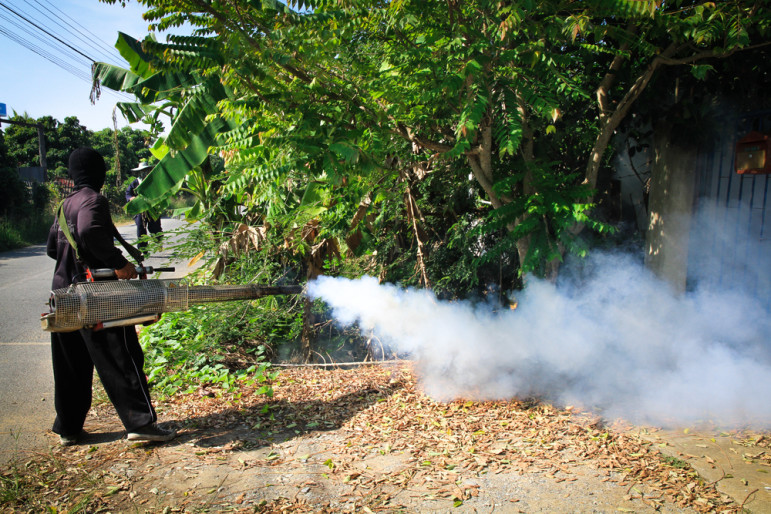
March 3, 2016; The Verge
NPQ has reported on the sometimes unique and innovative responses that the tech industry has had in the past to humanitarian crises. For example, in the aftermath of the devastating Nepal earthquake a year ago, while others were donating funds directly to nonprofits aiding relief efforts, several tech companies stepped in to provide a different kind of aid: helping families digitally find each other through free Internet and phone calls. Google also launched an online tool to help families find the status of their loved ones in disaster areas.
For the Zika outbreak, our unfamiliarity with the virus has been helping stoke fears of a humanitarian crisis, for which President Barack Obama has requested $1.8 billion dollars. Days ago, NPQ reported that there are 13 confirmed cases of Zika in Texas, which also raised questions about how the nonprofit sector could contribute to combating outbreaks.
According to a Google blog post, the search engine has seen a 3,000 percent increase in global interest in the virus since November, when it was declared a public health emergency. “Unlike many other global pandemics, the spread of Zika has been harder to identify, map and contain. It’s believed that 4 in 5 people with the virus don’t show any symptoms, and the primary transmitter for the disease, the Aedes mosquito species, is both widespread and challenging to eliminate.”
To help dispel some of the uncertainty and confusion surrounding the Zika crisis as well as stop the spread of the virus, Google has partnered with UNICEF to create an open source platform that will help the public track risks of outbreaks as well as also provide more information about the virus that might be difficult to access or otherwise unavailable in parts of Latin and Central America. A team of Google staff members is currently at work with UNICEF to build this platform, which will utilize a number of different sources of information, such as travel and weather patterns, to help identify the potential risk of an outbreak in certain areas.
Sign up for our free newsletters
Subscribe to NPQ's newsletters to have our top stories delivered directly to your inbox.
By signing up, you agree to our privacy policy and terms of use, and to receive messages from NPQ and our partners.
“Fighting Zika requires raising awareness on how people can protect themselves, as well as supporting organizations who can help drive the development of rapid diagnostics and vaccines. We also have to find better ways to visualize the threat so that public health officials and NGOs can support communities at risk,” said the blog post.
Along with identifying areas of transmission, Google also wants to provide users with more information about the virus in general. Through a one million dollar grant to UNICEF, the company will help the humanitarian nonprofit raise awareness, increase the availability and development of vaccines, and decrease populations of mosquitos. Internally, Google has also launched a campaign to match $500,000 in additional funds to give to UNICEF and the Pan-American Health Organization (PAHO), a public health agency that is part of the United Nations and World Health Organization and has been aiding in the Zika outbreak effort.
These are clearly lofty goals. From the vagueness of the blog post, we can see this idea of an open source platform has yet to be fully formed. Not only does it seem like the platform is still in production, but we wonder specifically what “travel and weather” sources of information will help uncover areas at risk for Zika transmission. According to Google, one purpose of the initiative is to help the government and NGOs direct their resources to areas ripe for a potential outbreak. The success of the project would depend, then, on how reliable these sources of information are.
However, until its platform goes live, with the first confirmed case of Zika in North Carolina, there is an urgent need to inform the public about the realities of the virus. Enabling UNICEF to continue its awareness campaign as well as providing up-to-date information on its own search engine are important steps to understanding the full extent of this health emergency.—Shafaq Hasan













